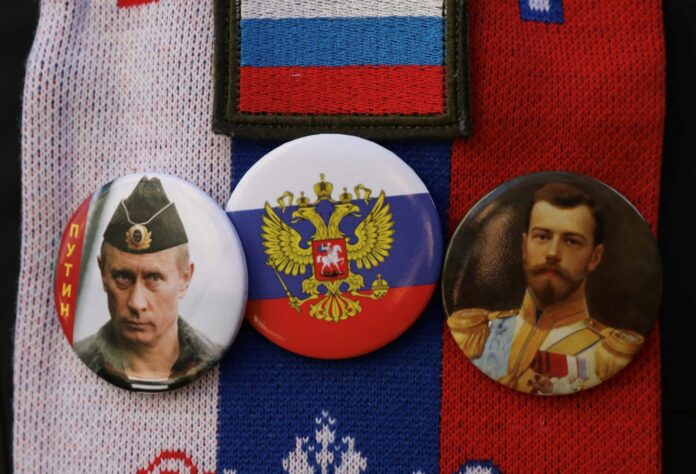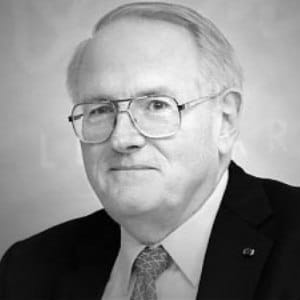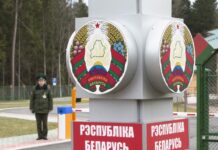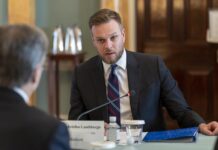
In an interview with LRT.lt, Paul Goble, an author and expert on ethnic and religious questions in Eurasia spoke about the possible dissolution of the Russian Federation. He said that by attacking Ukraine, Vladimir Putin is replicating the conditions that led to the dissolution of the Soviet Union three decades ago.
With a large numbers of casualties on the Russian side being soldiers from the minority-dominated regions of Russia, Goble maintains that there is definitely growing discontent. There is a large number of soldiers coming home in caskets, and it can’t easily be hidden. People are angry that they are there, and their nations are suffering disproportionately.
In the poor regions of Russia (including both ethnic Russian regions far from Moscow, as well as non-Russian regions), military service is a requirement to obtain work with the police or other entry-level positions in the government. And so, a disproportionate number of people from those places now serve in the Russian army. It’s probable that over half of the Russian military consists of either non-Russians or ethnic Russians from the faraway regions.
They aren’t receiving the compensation that the government promised and they’re far more aware than people in Moscow about the cost of the war. Some people believe that the war should have never been started, others that it should end quickly, some that other parts of Russia should be paying a bigger price.

Asked whether people in those regions believe the state propaganda about the special military operation and the fight against Nazism, Goble thinks it’s probably true that the greatest suspicion of the anti-Nazi narrative is found in urban centres, where people simply have more information, as opposed to someone living in a Russian village 2,000 kilometres from Moscow.
Although there is growing cynicism about what the Kremlin is saying, it has not yet grown into agreeing to an alternative narrative that could become the basis of mass protests.
The League of Free Nations was created by people who are from non-Russian areas, but in emigration. These are the people who have already had to flee. It is not yet a mass phenomenon, but the beginning of a process. It shows unwillingness among non-Russians to defer to Moscow’s Russian opposition and a desire to find their own way. The anti-Russian movements in the non-Russian republics want either federation or independence. From Moscow’s point of view, a demand for independence is much more radical than even demanding a change in leadership in the Kremlin.
Russian President Vladimir Putin has been opposed to federalism from the beginning. He has dismantled the system. The mistake that Putin is making is the same made at the end of Soviet times. The Soviet Union did not fall apart because of Gorbachev’s liberalization, but because he turned to the right afterwards.
Non-Russians in the Russian Federation have experienced greater freedom that has now been taken away from them. That makes it more difficult to imagine the emergence of a genuine Federation and far easier to imagine that in the coming years, we will see various parts of the Russian Federation, including Russian areas, move to acquire independence. In a previous article, Goble wrote that Putin isn’t restoring the Soviet Union – he’s restoring the conditions that made the demise of the Soviet Union possible. The process would probably be bloody and brutal this time around, as opposed to how little violence there was in 1991.
One of the grave dangers right now is that many people in the West, who were reluctant to support the demise of the USSR, are even more afraid of the demise of the Russian Federation, forgetting that the Russian Federation is as much an artificial creation as was the Soviet Union. But also, they are afraid of the man in the Kremlin now who threatens to use nuclear weapons, and the tendency is not to challenge him in any serious way.
What the West says and does doesn’t matter as much as people in the West think it does. Some of these things are going to happen because of what the people on the ground want.
Goble believes that within a few years, we will see parts of the Russian Federation break off, and there will be a reordering of the remainder of the country that will be more decentralized.
Russian and Soviet history has shown that every time there is a leader who moves in one direction, he is followed by a leader who moves in the exact opposite direction. Stalin went in one direction, Khrushchev went in the opposite direction. Brezhnev went into a form of Stalinism, then Gorbachev was more like Khrushchev. Afterwards, Yeltsin moved in a more open direction, and was followed by Putin, who moved in a more reactionary authoritarian direction. The author sees no reason to think that this pattern in Russian history will not be repeated.
In the Russia-occupied regions of Ukraine, the Russians are organizing referendums, proclaiming that those regions have the right to choose their own destiny, whether to join Russia or not. According to Goble, Putin is playing with fire by casting this in terms of a Kosovo-like national self-determination right, he has proclaimed a principle that can be used by others against him, and it might well be.
Had Putin behaved differently, he could have had a very different relationship with Ukraine. But like many Russian imperialists, he can’t imagine a world in which Russia isn’t dominating other people and doing so by force. But the Ukrainian people are heroically showing that they’re no longer prepared to bow down to Moscow. One could say that the quickest way for the Russian Federation to fall to pieces is for Putin to annex Ukraine. Because if he does so, Goble contends, there will be a country centred on Moscow that will be not two-thirds but only 50 percent Russian. “We remember what happened the last time that a country centred on Moscow had a population that was only 50 percent Russian. It fell apart. And the pressure to have it fall apart now is greater than it was in 1990 and 1991.” LRT.lt
Paul A. Goble, an American analyst, writer and columnist with expertise on Russia, he is the editor of four volumes on ethnic issues in the former Soviet Union and has published more than 150 articles on ethnic and nationality questions. Goble served as special adviser on Soviet nationality issues and Baltic affairs to Secretary of State James Baker.





























